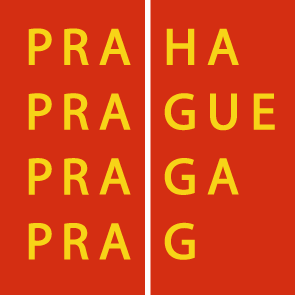CZECH LANGUAGE COURSES

FOR ADULT UKRAINIANS WITH TEMPORARY PROTECTION VISAS
úterý 9:00-12:15 (10 lekcí)
Probíhá.
České Budějovice — Čeština pro trh práce (14. 7. – 26. 8. 2025)
pondělí, úterý, čtvrtek 8:30 – 10:00 (20 lekcí)
Probíhá.
More information: cestina@inbaze.cz
The Czech language courses are carried out as part of the project Čeština pro Ukrajinu.

FOR NON-SLAVS
Czech language course for children aged 8–12 (non-Slavic native language) — beginners/false beginners
4 Aug – 29 Aug
Mon, Wed, Fri: 9:00 – 12:05
Address: InBáze, Legerova 50, Prague 2
The course is free, and all materials are provided at no cost.
Registration: https://forms.gle/RUvTEzqgw1VFAeBw6
More info: cestina@inbaze.cz

FOR CHILDREN
Prague — Czech language course for Ukrainian pupils aged 13–17 — Beginners (28 Jul – 8 Aug 2025)
Czech language course for Ukrainian pupils aged 8–12 — lower-intermediate level (4 Aug – 29 Aug 2025)
Tue & Thu: 9:00 – 12:05
The course is free, and all materials are provided at no cost.
Please note: A deposit of 1,000 CZK is required. It will be refunded if the participant attends at least 70 % of the classes.
How to sign up?
Fill in the online registration form that will be linked to the course announcement.
Within about a week, we will contact you to let you know whether you’ve been accepted or to ask any follow-up questions.
You will complete your registration in person at the first lesson of the course.
How to determine your language level?
We offer Czech courses at different levels. Before you register, please make sure the course level matches your proficiency.
A0
You don’t speak Czech (apart from a few words or phrases).
A1
You can respond and understand in predictable, concrete situations when people speak slowly and clearly. You can give basic information about yourself and ask for information about others (address, phone number, age, place of residence, interests, family, past holiday, weekend, parts of the body, food, where you live).
You speak in short sentences and know—and try to use—the grammatical tenses: present, past, and partly the future tense.
A2
You understand frequently used expressions and phrases on everyday topics you’re familiar with (family, your surroundings, shopping, work, hobbies) and can communicate about these matters in a simple, brief way.
You know all the grammatical tenses (though you may make mistakes when using them) and are familiar with some declensions, mainly in the singular, but you’re usually unsure when and how to apply them.
B1
You understand the main ideas in standard language on common topics — work, study, current events, hobbies, and so on. You can take part in a conversation on familiar everyday subjects without preparation, describe your experiences in simple terms, retell a story or film, and present arguments.
You know the tenses (present, past, future), the conditional, and the passive voice; you have studied singular and plural declensions and can use them to some extent.
B2
You can hold a fluent, spontaneous conversation with a native speaker and defend your opinions. You understand most television news, programmes, and films in standard language.
You know all the grammatical points covered in the previous levels; you need to keep practising them and are learning the exceptions.


- Legerova 357/50, 120 00 Praha 2
- info@inbaze.cz
- (+420) 739 037 353 (pondělí–čtvrtek)
Naší vizí bylo vytvořit bezpečný a otevřený prostor, kam by přicházeli za podporou a pomocí nejen cizinci hledající nový domov v České republice, ale i Češi, kteří se zajímají o život cizinců v ČR nebo se jich nějak jinak téma integrace dotýká.